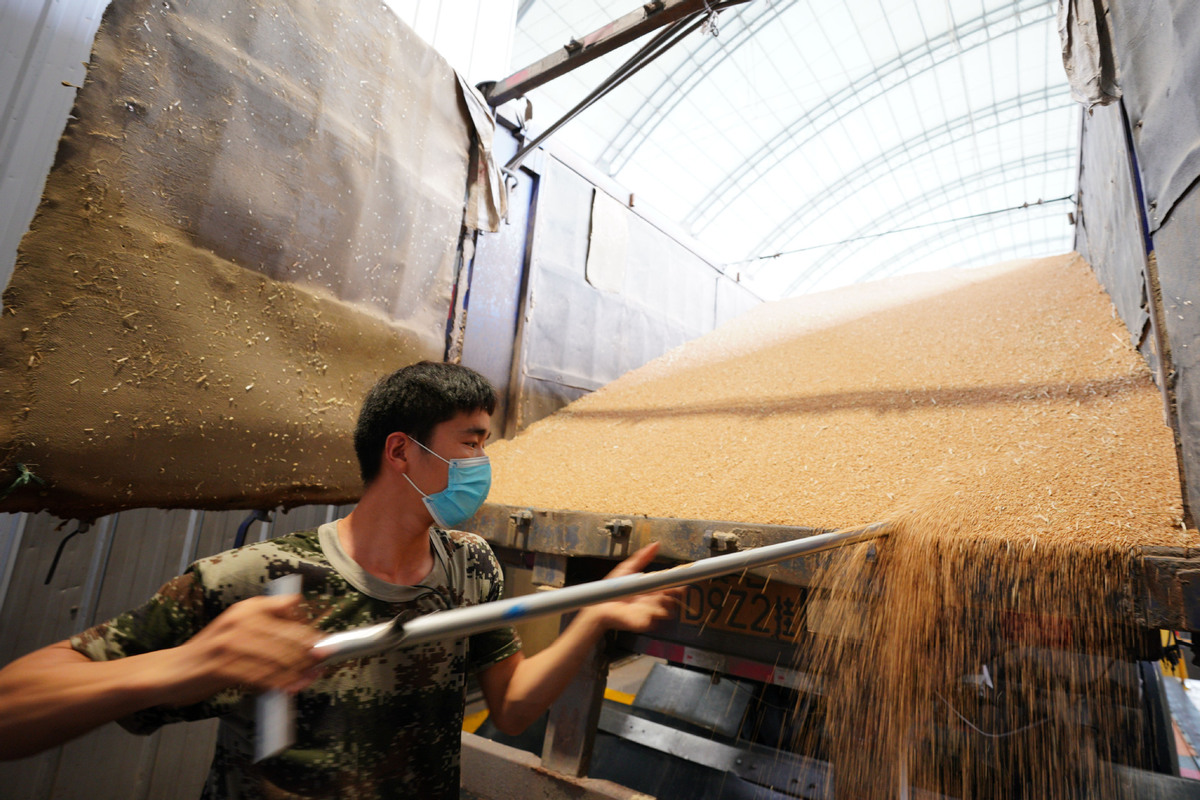Government wheat purchasers outbid by private companies


Government wheat purchases in major production areas declined this summer as many farmers sold into a better performing open market in the past weeks, experts revealed recently.
According to statistics released by the National Food and Strategic Reserves Administration, government wheat purchases in major production areas were 42.8 million metric tons as of Aug 5, a drop of about 9.38 million tons compared to the same period last year.
Henan province, where the purchases fell the most, only saw 9.12 million tons of wheat sold to the government. It was followed by Anhui, Hebei, Jiangsu and Shandong provinces.
"The well-preforming market resulted in a higher price in the open market than the government acquisition price," Hu Bingchuan, a researcher from the Rural Development Institute of Chinese Academy of Social Sciences, said in a recent interview with ThePaper.cn.
He said the government acquisition price is a preferential policy to ensure basic profits of farmers in major production areas, which also plays an important role of maintaining stable grain production.
According to Sublime China Information Co, China's online commodity pricing platform, the prices for wheat offered by many wheat powder companies this summer was between 2.4 yuan ($0.35) and 2.8 yuan per kilogram, higher than the government acquisition price of 2.32 yuan per kg.
Xu Xueping, an analyst with SCI, told ThePaper.cn that increasing wheat prices this summer might be influenced by stronger market demand and rising corn prices in July.
Both corn and wheat are major food supplies for livestock, he said, and higher corn prices forced livestock producers to purchase more wheat as a substitute, which boosted wheat prices.
According to Hu, some farmers and agricultural product agencies had higher expectations for the wheat market in the second half of the year and hoarded their produce for a higher price, which also contributed to the drop of government wheat purchases.
"Fluctuations in wheat prices have been witnessed regularly in recent years. But in general, it wasn't and will not pose a threat to our food security," he said.
According to the National Food and Strategic Reserves Administration, government wheat acquisitions were 42.9 million tons in 2018, a drop of 21.5 million tons compared for 2017. In 2019, however, purchases bounced back to 64.3 million tons.
Summer grain is the first season of China's annual grain production, which accounts for more than one-fifth of the annual grain output.
In mid-July, the National Bureau of Statistics revealed that China's summer grain output reached a historic high of 142.8 million tons this year, an increase of 1.2 million tons compared with the same period last year.
- China launches satellite to aid in early extreme weather detection
- Report on mining accident that killed 6 suggests accountability for 42 individuals
- Law aimed at bolstering standard Chinese language education passed
- Connecting cities, changing lives
- World's longest expressway tunnel opens to traffic
- Taiwan lawmakers vote to pass motion to impeach Lai





































